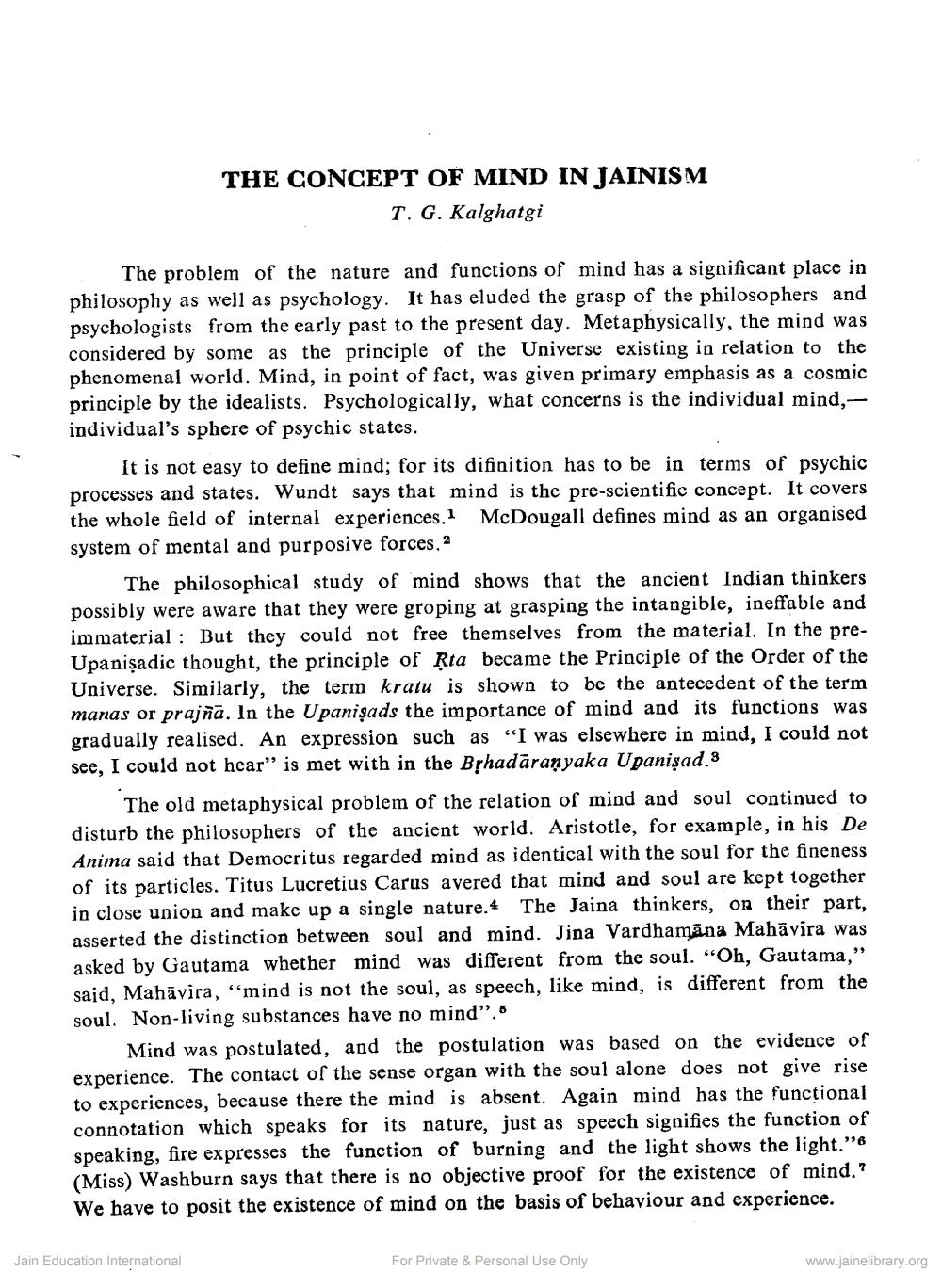________________
THE CONCEPT OF MIND IN JAINISM
T. G. Kalghatgi
The problem of the nature and functions of mind has a significant place in philosophy as well as psychology. It has eluded the grasp of the philosophers and psychologists from the early past to the present day. Metaphysically, the mind was considered by some as the principle of the Universe existing in relation to the phenomenal world. Mind, in point of fact, was given primary emphasis as a cosmic principle by the idealists. Psychologically, what concerns is the individual mind,individual's sphere of psychic states.
It is not easy to define mind; for its difinition has to be in terms of psychic processes and states. Wundt says that mind is the pre-scientific concept. It covers the whole field of internal experiences. McDougall defines mind as an organised system of mental and purposive forces.
The philosophical study of mind shows that the ancient Indian thinkers possibly were aware that they were groping at grasping the intangible, ineffable and immaterial : But they could not free themselves from the material. In the preUpanişadic thought, the principle of Řta became the Principle of the Order of the Universe. Similarly, the term kratu is shown to be the antecedent of the term manas or prajña. In the Upanişads the importance of mind and its functions was gradually realised. An expression such as "I was elsewhere in mind, I could not see, I could not hear" is met with in the Brhadaranyaka Upanişad. 3
The old metaphysical problem of the relation of mind and soul continued to disturb the philosophers of the ancient world. Aristotle, for example, in his De Anima said that Democritus regarded mind as identical with the soul for the fineness of its particles. Titus Lucretius Carus avered that mind and soul are kept together in close union and make up a single nature. The Jaina thinkers, on their part, asserted the distinction between soul and mind. Jina Vardhamana Mahāvira was asked by Gautama whether mind was different from the soul. “Oh, Gautama," said, Mahāvira, “mind is not the soul, as speech, like mind, is different from the soul. Non-living substances have no mind”.
Mind was postulated, and the postulation was based on the evidence of experience. The contact of the sense organ with the soul alone does not give rise to experiences, because there the mind is absent. Again mind has the functional connotation which speaks for its nature, just as speech signifies the function of speaking, fire expresses the function of burning and the light shows the light."6 (Miss) Washburn says that there is no objective proof for the existence of mind." We have to posit the existence of mind on the basis of behaviour and experience.
Jain Education International
For Private & Personal Use Only
www.jainelibrary.org




